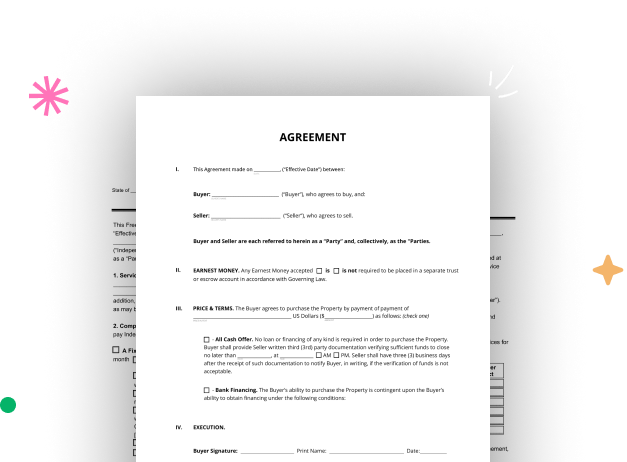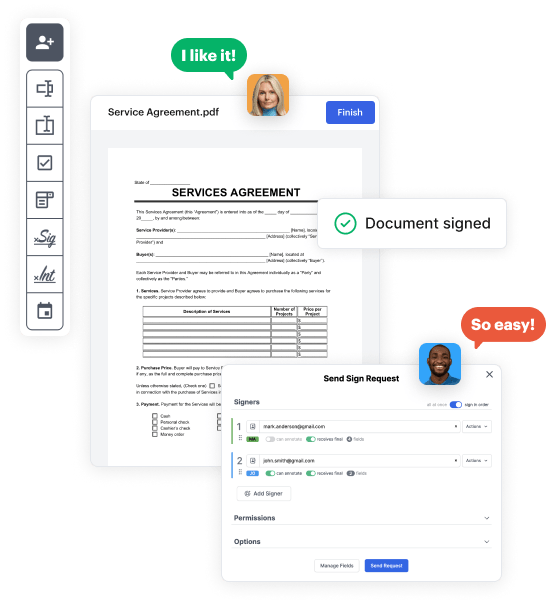

First, log in to your DocHub account. If you don't have one, you can simply sign up for free.
Once signed in, head to your dashboard. This is your main hub for all document-based operations.
In your dashboard, hit New Document in the upper left corner. Choose Create Blank Document to build the Kentucky Property Management Form from scratch.
Add different fields like text boxes, images, signature fields, and other fields to your template and assign these fields to intended users as needed.
Refine your template by adding instructions or any other required information using the text feature.
Carefully go over your created Kentucky Property Management Form for any errors or needed adjustments. Take advantage of DocHub's editing tools to enhance your document.
After completing, save your file. You can choose to retain it within DocHub, transfer it to various storage services, or send it via a link or email.